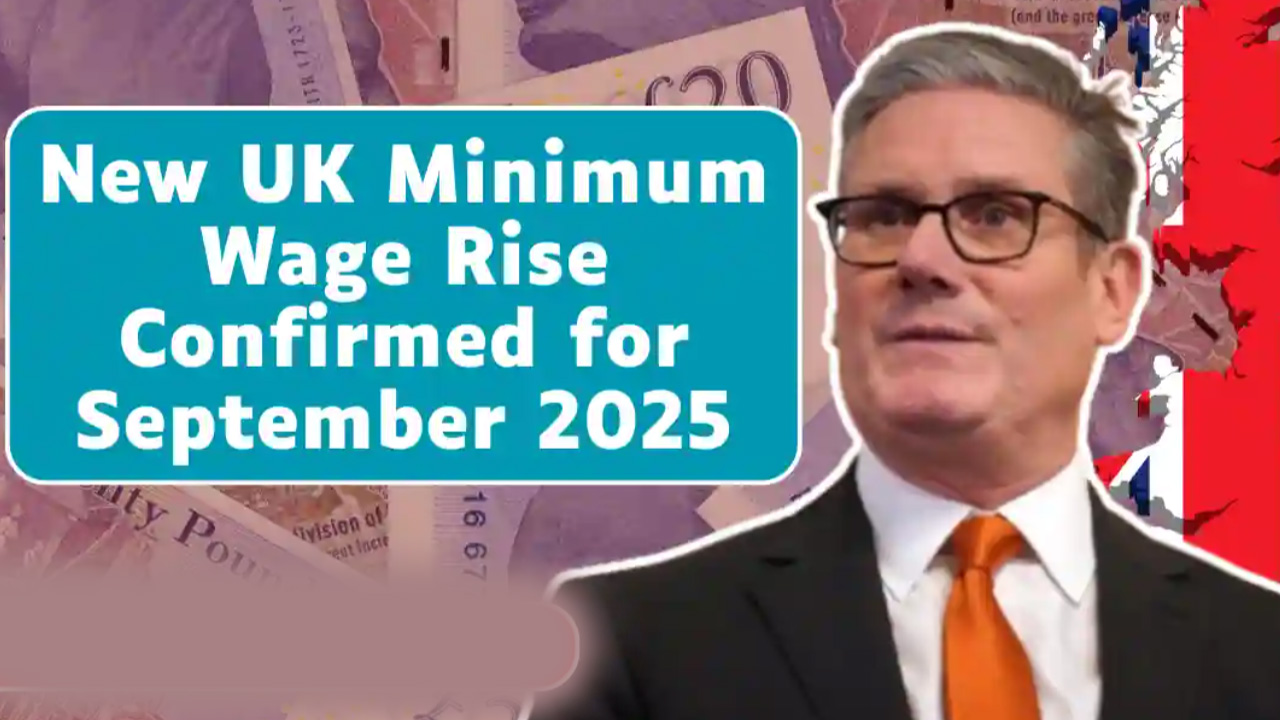The UK government has confirmed that both the National Minimum Wage (NMW) and the National Living Wage (NLW) will rise from September 2025, providing relief to millions of workers amid rising living costs.
What is the Minimum and Living Wage?
-
National Minimum Wage (NMW):
The lowest hourly wage employers can legally pay, varying by age and apprenticeship status. -
National Living Wage (NLW):
Applies to employees aged 21 and over (threshold lowered from 23 to 21 from April 2024).
Free TV Licence 2025: UK Government Expands Benefit to All Pensioners
Why is the Increase Happening in 2025?
-
Government aims to align wages with inflation to maintain workers’ purchasing power.
-
The Low Pay Commission regularly reviews these rates.
-
With inflation likely above 5% in 2024–25, the increase will help workers cope with rising costs.
New Pay Rates from September 2025
-
National Living Wage (21+): £12.10 per hour
-
18–20 years: £9.20 per hour
-
Under-18s (16–17 years): £7.15 per hour
-
Apprentices: £6.65 per hour
Who Will Be Eligible?
-
21+ years: £12.10 (Living Wage)
-
18–20 years: £9.20
-
16–17 years: £7.15
-
Apprentice (under 19 or first year): £6.65
£1,000–£2,950 WASPI Compensation Confirmed for September 2025 – Check If You Qualify
Excluded: Self-employed, company directors, volunteers, armed forces, and people on government training programmes.
Additional Earnings for Employees
For a full-time employee (21+) working 37.5 hours/week:
-
Old rate (April 2025): £11.44/hour → £22,308 per year
-
New rate (September 2025): £12.10/hour → £23,595 per year
-
Extra income: ~£1,287/year (before tax)
Impact on Families
This extra income can help cover:
-
Rising energy bills in winter
-
Council tax
-
Grocery costs
-
Childcare and school expenses
Sectors benefiting the most: Retail, hospitality, and care.
Business Outlook
-
Small businesses may face higher wage bills.
-
Government support available: National Insurance relief, business rate cuts.
-
Benefits of fair pay: Boosts morale, reduces attrition, increases productivity.
Tighter Rules in 2025
-
Employers must pay owed wages.
-
Fines: Up to 200%, max £20,000 per employee.
-
HMRC enforcement: Companies flouting rules may be made public.
Impact on Universal Credit and Benefits
-
Higher wages may reduce some benefits, like Universal Credit.
-
Overall, most employees will benefit.
What Should Employees Do Next?
-
Check payslips from October 2025.
-
Report to HMRC if not paid correctly.
-
Review Universal Credit eligibility.
-
Use the wage increase to budget, save, and pay off debts.
After 2025
-
Government aims to keep minimum wage at two-thirds of median earnings.
-
Rates may rise further in 2026 if inflation remains high.
-
Experts estimate NLW could reach £12.50 or more by 2026.
Conclusion
The September 2025 pay rise is a major relief for UK workers.
-
National Living Wage: £12.10 per hour
-
Small businesses may feel pressure, but employees benefit financially.
People Also Ask (FAQs)
1. What will the new minimum wage rate be in September 2025?
-
£12.10 per hour for 21+ employees, with different rates for young workers and apprentices.
2. Who will be eligible?
-
All workers except the self-employed, volunteers, and armed forces.
3. How much more will a full-time employee earn?
-
~£1,287 extra per year (before tax) for employees aged 21+.
4. Will there be an impact on Universal Credit?
-
Small reduction possible, but overall earnings increase.
5. Will pay rise again in 2026?
-
Likely; NLW could exceed £12.50 per hour.
